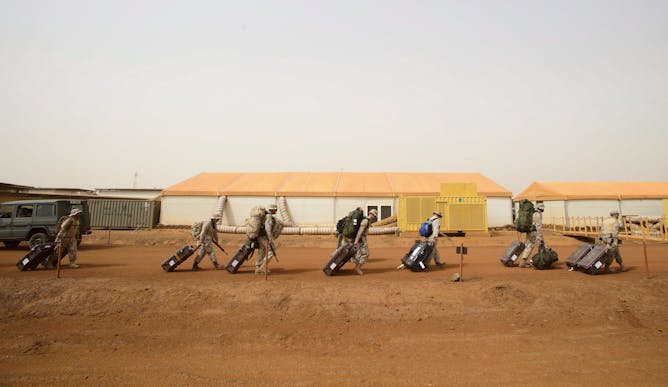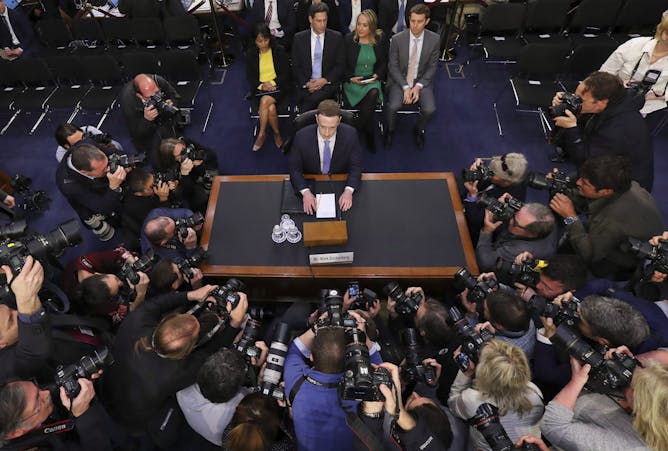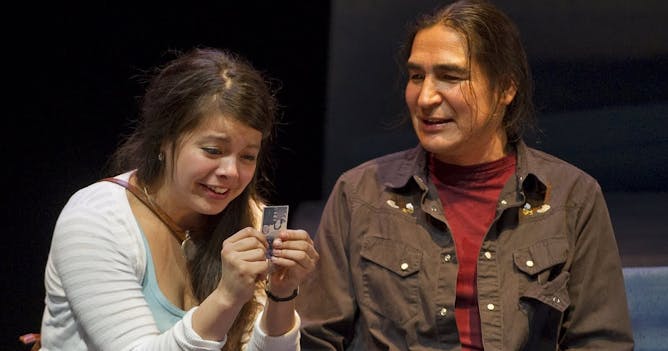|
Canada has sanctions in place against 19 countries, but how easy is it for individuals or companies to flout them? Today in The Conversation Canada, Andrea Charron and Cristina Aliu of the University of Manitoba explain how the federal government has set aside more than $20 million to develop a comprehensive sanctions plan to make sure government actions against rogue countries are more effective and in line with our international partners.
Terrorist groups have become adept at using social media to spread their message. Kyle Matthews and Nicolai Pogadl of Concordia University says claims by tech titans that they can use AI to successfully monitor and take down terrorist material is over-stated and sometimes results in legitimate human rights sites being mistakenly targeted.
Leanne Keddie of Concordia University has looked how accountants can expand their skillsets beyond number crunching and auditing to help firms with their environmental sustainability goals.
And finally… Ginny Ratsoy of Thompson Rivers University says the Ministry of Canadian Heritage has a golden opportunity to promote Indigenous playwrights by approving a request by the National Arts Centre for more funding. Doing so would be an important part of honouring the Truth and Reconciliation Commission.
Regards,
|

Canadian troops arrive to a UN base in Gao, Mali, on in June 2018, amid an insurgency by jihadist and ethnic rebel groups. Canada has yet to impose sanctions on the African country because it lacks names to target for asset freezes and other measures.
THE CANADIAN PRESS/Sean Kilpatrick
Andrea Charron, University of Manitoba; Cristina Aliu, University of Manitoba
The federal government has set aside $22.2 million to develop and co-ordinate sanctions while educating Canadians about their obligations. Where to start is the first question.
|

Facebook CEO Mark Zuckerberg takes his seat to testify on Capitol Hill in Washington in April 2018 about the use of Facebook data to target American voters in the 2016 election.
(AP Photo/Pablo Martinez Monsivais)
Kyle Matthews, Concordia University; Nicolai Pogadl, Concordia University
Many tech titans say they can self-regulate online hate speech and extremism with artificial intelligence, but can they?
|

Why isn’t sustainability a part of accounting training?
(Shutterstock)
Leanne Keddie, Concordia University
Despite the leaders of both countries being champions of fighting climate change, research shows both Canada and France are failing to train their accountants in sustainability. Why?
|

Plays like ‘Where the Blood Mixes’ (with actors Kim Harvey and Billy Merasty) help shed light on Indigenous stories, helping to educate Canadian audiences.
David Cooper
Ginny Ratsoy, Thompson Rivers University
Indigenous theatre and storytelling provides an opportunity for all Canadians to honour the directives of the Truth and Reconciliation Commission. The Canadian government should support this mission.
|
Education
|
-
Randall Curren, University of Rochester; Charles Dorn, Bowdoin College
As debates over protests during the national anthem continue to rage, two scholars examine how legal and moral battles over the merits of patriotism in public schools have been playing out for years.
|
|
Environment + Energy
|
-
Sally Brown, University of Southampton
Without action about 50 African countries and surrounding islands will be affected by rising sea levels.
|
|
Health + Medicine
|
-
John McNeil, Monash University
Taking low-dose aspirin daily doesn't delay the onset of disability in healthy older people. Nor does it prevent heart attack or stroke in those who hadn't experienced either condition before.
|
|